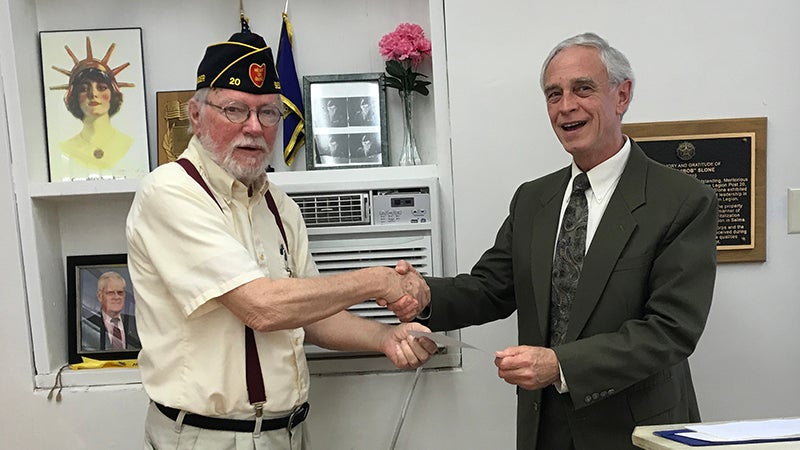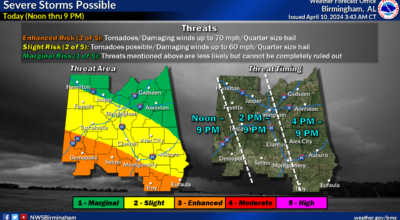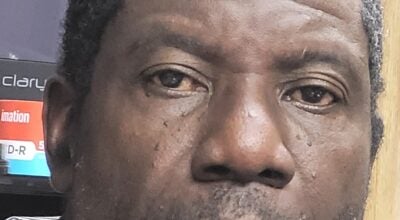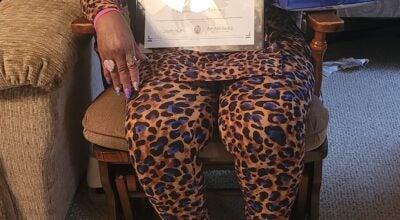American Legion battles Alzheimer’s
Published 9:47 pm Monday, February 12, 2018

- Charlie Friday, post commander for the American Legion Thomas R. Mackin Post 20, gives a $300 donation to Oscar Calloway of the Alzheimer’s-Autism Outreach Group Saturday. (Adam Dodson | Times-Journal)
By Adam Dodson | The Selma Times-Journal
Selma’s Alzheimer’s-Autism Outreach Group has partnered with the American Legion to benefit a local veteran in need.
The American Legion, a veteran’s organization, hosted the outreach group at its facility to contribute to the need of veterans struggling with a variety of mental illnesses, including Alzheimer’s. After learning more about the work the Alzheimer’s-Autism Outreach Group does for those dealing with the illness by providing tracking bracelets, American Legion decided to pitch in themselves with a $300 donation for one bracelet.
The bracelets, given to the Sherriff’s Department for tracking, are for those with Alzheimer’s who have a tendency to “wander off” and forget where they are. The bracelets, which have capabilities to work at nighttime, would help the Sherriff’s Department locate anyone who is missing or wandered off. While the outreach group has implemented around 100 bracelets, the bracelet being donated by American Legion is specifically reserved for a veteran in need.
“Everyone knows someone who struggles with Alzheimer’s,” director of Alzheimer’s-Autism Outreach Group, Oscar Wayne Calloway, said. “Our mission statement is ‘keeping them safe while giving them hope.’ We need better outcomes for veterans who wander off.”
The money for the tracking bracelets comes from a combined effort of the Dallas County Sherriff’s Department, Alabama State Troopers, Alzheimer’s Outreach and American Legion.
In addition to the bracelet today, Alzheimer’s Outreach feels confident in a positive partnership with American Legion going forward.
Along with American Legion and law enforcement, Calloway says that they will also continue their work with The University of Alabama-Birmingham’s research department and their thrift store.
According to Calloway, the need for Alzheimer’s research and aid is crucial, as those with the disease and their families still look for a cure.
“When my mother had Alzheimer’s, we realized the need people have,” Calloway said. “It is hard on those with Alzheimer’s, and it is hard on their families and caretakers as well.”





